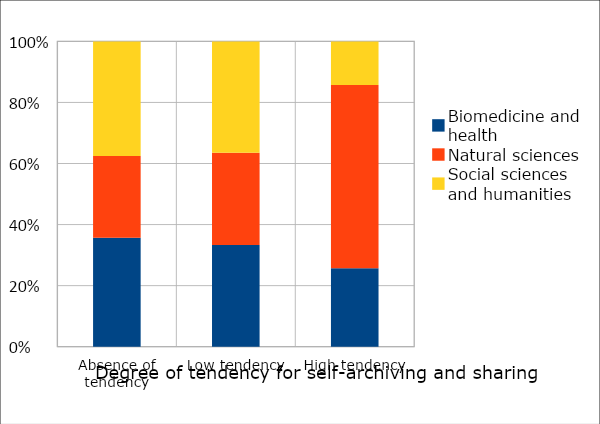Differences in openness and sharing of scientific papers – a case study of the University of Rijeka, Croatia
- Iva Vrkić, Department of Geophysics, Faculty of Science, University of Zagreb
- Ivana Hebrang Grgić, Faculty of Social Sciences and Humanities, University of Zagreb
- Jadranka Stojanovski, University of Zadar / Ruđer Bošković Institute
- Ksenija Baždarić, School of Medicine, University of Rijeka
Aim
The aim of this case study is to take a look at the practices of publishing, archiving, and sharing scientific papers at the University of Rijeka, Croatia.
Methods
We focused on scientific papers (N=210) by authors affiliated to Rijeka University in the field of biomedicine and health, natural sciences, social sciences and humanities, posted at the Croatian Scientific Bibliography (CROSBI) between 2017–2019. The papers were divided in three groups of 70: biomedicine and health, natural sciences, and social sciences and humanities (social sciences and humanities were analysed together, as the authors are in the same institution) based on a probabilistic random sample. The SciMago Journal Rank (SJR) quartile was used as a metric. Their presence as full texts in open access was verified in three national repositories (Dabar UNIRI, ArXiv, and CROSBI) and on the social academic network ResearchGate. We investigated differences in the tendency of self-archiving and sharing with regard to the field of science.
Results & Discussion
Authors in the field of natural sciences (N=55, 78.6%) and biomedicine and health (N=49, 70%) published significantly more (P<0.001) in Q1 and Q2 journals. Authors in the field of social sciences and humanities published more in Q3 and Q4 journals and journals not indexed in the Scopus (N=57, 81.4%) (Figure 1).
We found no difference in the number of papers in regard to access (P=0.7825) (Figures 2 and 3). The most popular platform for self-archiving and sharing was ResearchGate (N=77), followed by ArXiv (N=32), Dabar UNIRI (N=15), and CROSBI (N=9).
Self-archiving and sharing were the most common in the field of natural sciences (N=21, 60%) (Figure 4). No significant relationship was observed between the SJR quartile and authors’ tendency to self-archive or share their work on an open platform (P=0.116).
Conclusion
Scientists from the University of Rijeka, Croatia mostly used the Research Gate platform and the highest degree of tendency for self-archiving and sharing papers is shown by natural scientists. The quality of a journal and sharing tendency is not correlated.
Future research
Future research may focus on the assessment of openness and sharing of scientific papers at other Croatian universities in order to tell whether there may be any underlying pattern on the national level.

Figure 1. Distribution of papers at the University of Rijeka with regard to the field of science and SJR quartiles

Figure 2. Openness of papers at the University of Rijeka with regard to the field of science

Figure 3. Openness of papers at the University of Rijeka with regard to the SJR quartile of the journals in which they were published

Figure 4. Degree of tendency for self-archiving and sharing